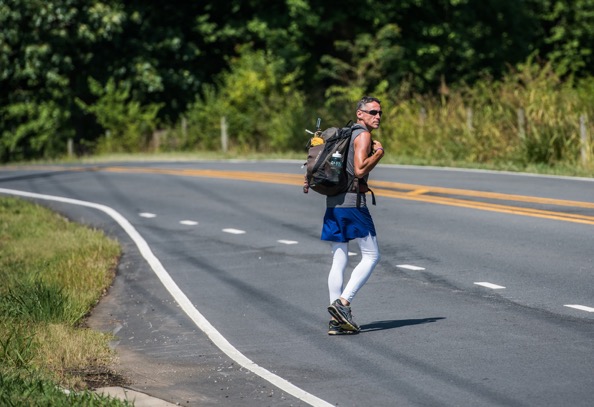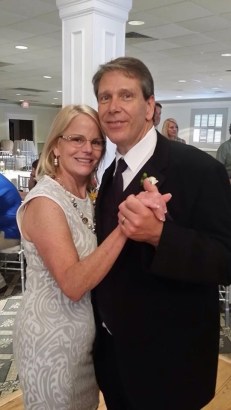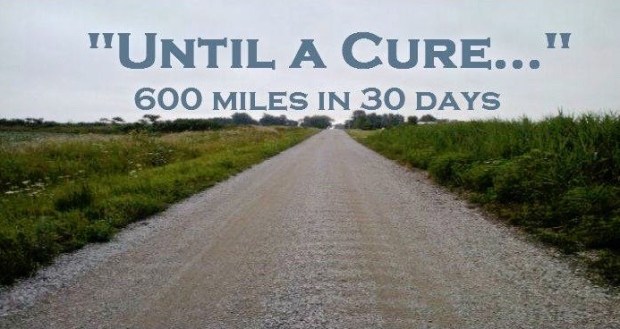With sore legs and a swollen ankle, William Glass reached the end of his journey early Monday morning.
A journey of more than 600 miles. On foot.
Glass made the trek from Atlanta to Washington, D.C., to raise awareness of Alzheimer’s. His mother has the disease, and is a resident of an Atlanta long-term care facility with around-the-clock care.

“I want to show people this is serious stuff,” Glass said recently during his journey. “I’m taking this walk and this campaign to show the American public we’ve got a serious problem on our hands and I’m taking it seriously.”
It’s not the first time Glass has tried to make a difference by walking for Alzheimer’s. In 2013, he trekked from Chicago to Atlanta, raising disease awareness and raising close to $10,000.
This year’s walk is different. Glass noted recently that he’s more experienced now. He carried a petition that many people signed along the way.
The petition calls on the federal government to demand higher standards, ethics, transparency, education and training in U.S. dementia care facilities. It was his hope to personally deliver the signed petition to President Trump.
“When it rains, I get wet,” Glass wrote along the way to Washington. He said he kept on walking because caretakers and people with Alzheimer’s know they can’t take a break, either.
Watching a loved one decline
The National Institute on Aging says dementia is the “loss of cognitive functioning — thinking, remembering, and reasoning — and behavioral abilities to such an extent that it interferes with a person’s daily life and activities.”
Today, Alzheimer’s is the most common cause of dementia among older adults. Experts say more than 5 million Americans may have Alzheimer’s.
An estimated 130,000 Georgians have been diagnosed with the disease, and the numbers are expected to increase greatly over the next decade.
And it’s estimated there are hundreds of thousands of paid and unpaid family caregivers for those patients.

Sandy Springs resident Dan Goerke has been one of the caregivers.
His wife, Denise, was diagnosed with early-onset Alzheimer’s at age 56. She had been a highly successful national saleswoman for Xerox.
“For Denise, the disease progressed extremely fast — like everything she did in life,” Goerke said. Her ability to handle routine business declined quickly, he said, and it became clear that something was very wrong when “she would lose her way and call home for directions.”
The most difficult decision for him and their three grown children was eventually relocating Denise to a memory care center for her own safety.
“Her biggest fear five years ago was knowing she would somehow forget her family,” Goerke told GHN. Thankfully that has not happened yet. “Today, she recognizes who we are when we visit and gets our names correct — sometimes,” he said.
He and the family take some comfort in the fact that his wife is still able to smile and laugh, and that she’s receiving good care. But witnessing what Alzheimer’s is doing to her is not easy.
“She was vibrant, loved life and had everything to live for,” Goerke said. “Yet most of the person we knew as Denise has been destroyed by this horrid disease.”
Goerke walks, too. This will be his fifth year on his personal journey to help with the Atlanta Walk to End Alzheimer’s. This year, the Atlanta walk will be Sept. 16.
Goerke said, “If you ask any Alzheimer’s physician, they will tell you that it takes on average three caregivers for every patient because the care is so intensive.”
Unfortunately, Alzheimer’s disease is currently irreversible and incurable, and there’s no proven way of preventing it. But science has managed to beat other horrifying diseases, so there is hope. That’s why the walkers walk.
Refusing to give up
Like any long-distance walk, Glass’ journey had plenty of hardships.

Writing from North Carolina in late July, he said on Facebook, “It’s hot, it’s humid, the sun is relentless, and the blacktop accentuates the [steamy conditions].”
“The pain in my legs and feet [is] unbearable,” he said.
He admitted that he had contemplated “throwing in the towel” more than once.
On July 29, Glass said he “overdid it.” He walked 35 miles two days earlier. “It rained most of the day,” he stated on Facebook.
“I stumbled into a hotel about 1:00 a.m. and sat on the couch,” reads his Facebook commentary.
“The next think I knew, I woke up at 6:00 a.m. sitting in the same spot,” said Glass.
From the couch, he said, he walked to the YMCA in South Boston, Va., where he was allowed to shower and get some added sleep.
“Still not feeling well,” he said, “I returned to the same hotel to get a room and a good night’s sleep for [only] the second time on this journey.”

But Glass finished his trek to the nation’s capital. He visited congressional offices Monday. And though the president is out of town, Glass has said he plans to deliver the petition to the White House.
Along the route, he visited one nursing home after another. And he listened to caretakers tell their stories. It’s about a grandmother, a dad, a neighbor, a friend.
The stories keep coming, he wrote. Glass said it’s his “responsibility to deliver all of those stories to Washington.”
“Someone asked me last night about the end of my journey,” he told GHN last week. “No!” I responded, “The journey’s just begun.”
He said his campaign is not about him. It’s about “standards, training, education and transparency in our long-term care facilities.”
And equally important, he says, is “teaching and training for avoiding the overuse of anti-psychotic medications” for these patients.
As Glass approached the finish line, he said he was not finished listening to hundreds of stories and adding names to his petition.
“I got soaking wet when it rained,” he said, but he didn’t take a break. “That’s because I wanted people to think about all those caregivers,” he said.
“When do they get a break?”

HERE’S A LINK TO THE ALZHEIMER’S FOUNDATION OF AMERICA
Judi Kanne, a registered nurse and freelance writer, combines her nursing and journalism backgrounds to write about public health. She lives in Atlanta.

